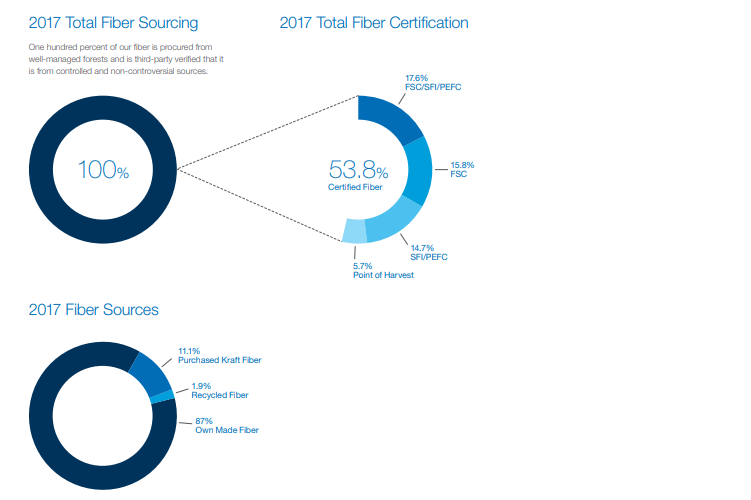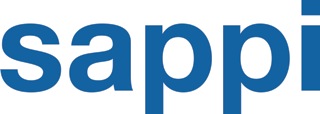Sappi Continues to Procure 100% Sustainable Fiber

The following offers a view of our annual performance in important areas of environmental and social responsibility. We monitor key metrics for fiber, emissions, energy usage and the impact of our operations on air, water and solid waste. We use this data to set improvement goals for our operations and interactions with key stakeholders.
One hundred percent of our fiber (wood and pulp) is procured from well-managed forests and is third-party verified that it is from controlled and non-controversial sources. These third-party programs provide assurance that wood-based products have been procured from well-managed forests and are legally harvested. While Sappi does not own any forestland in North America, our foresters provide active forest management services for landowners within our procurement zones. We continue to support and recognize the efforts of multiple third-party certifi cation programs, including the FSC, SFI, PEFC, and American Tree Farm System®, a PEFC-endorsed certification program. The Point of Harvest certified fiber refers to wood fi ber harvested from lands not otherwise certified by one of the forest management standards but is harvested by logging professionals who are trained and certified in practices designed to conserve forestland. All recycled fiber (RF) is sourced from producers within North America and the deinked pulp is processed chlorine-free. All kraft pulp is elemental chlorine-free (ECF).
The SFI and FSC certification programs have modified their standards to include post-industrial fiber (PIF) as part of their claim and labeling schemes. In considering this change, FSC published a comprehensive study where it concluded that restricting claims to only post-consumer fi ber was creating an uneven playing field in global markets and was actually distorting consumers’ perception of the value of recycled fiber.
During FY17, we utilized recycled fiber from both post-industrial and post-consumer recovered fiber sources. Our deinked pulp suppliers don’t quantify the ratio of the specific sources; therefore, we no longer differentiate and simply categorize all of these sources as “recycled fiber.”
Read more from Sappi North America's 2017 Sustainability Report here: http://bit.ly/Sappi-SR17

